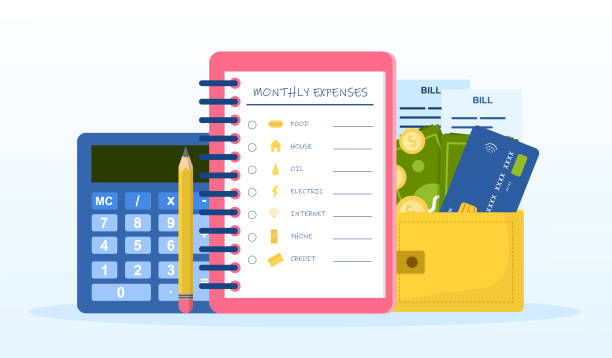In this article, let us understand how effectively you can manage your outflow.
You all would agree that “Income minus investments equal to expenses” should be the rule. In simple terms, it means that your priority should be investment and savings over your expenses. After taking care of the investment part, you can spend the rest of your income.
But, my primary question to all of you is, “Do you exactly know how much your expenses are?”
Though it seems an easy task to calculate the expenses, it is not. We are aware of our fixed monthly expenses, but forget to consider quarterly and annual expenses, but forget to consider the money spent on festivals, gifts, maintenance of our belongings, etc.
We might end up having negative cash flow if we consider all of that. That means expenses are more and income is less.
In this case, we have to fund the unavoidable expenses through borrowings or withdrawals from savings.
Many people complain that they never have a sufficient bank balance in case of need. It is because of a lack of planning and understanding.
I remember one of my friends who wanted to withdraw money from the Equity Mutual Fund portfolio to pay the Income-tax. Now, income-tax expenses are known to us. We should plan it. But, my friend avoided it and ended up making the wrong decision. Hence, I felt it is a need to write it for general awareness.
To avoid this clutter, we have to relook at our actual outflow. It helps us find out which things we spend on and how much. It will lead to curtailing unnecessary expenses.
Now comes the main question, how to do it?
Classify your expenses in three categories,
First Category:
Fixed Monthly Expenses:
These are inevitable such as Loan EMI, Rent, Household expenses, Insurance Premium, school fees of children, etc.
Second Category:
Lifestyle expenses:
These are less important. It includes Entertainment expenses, Dining out, Travelling, Shopping, etc.
Make a budget for it and decide the maximum amount to be spent on a monthly or annual basis.
Third Category:
Fixed Annual Expenses:
These are again unavoidable like Annual insurance premium, School fees, Asset Maintenance, House tax, Festival expenses, donations, etc. These category expenses are underrated.
After making these categories, make a budget for each category.
Maintain separate bank accounts for each category.
- For a salaried person, keep your salary account as a Primary Bank Account.
- For a Businessman, select any one account which you feel operationally convenient. From this account, you can route fixed monthly expenses.
The other two bank accounts are to be maintained for Lifestyle Expenses and Annual Fixed Expenses.
You may find it difficult for a few days, but you will be sorted, as far as your expenses are concerned.
Benefits of maintaining separate bank accounts,
- Easy tracking of expenses. You will come to know from the Bank account that the expenses are from which category.
- Clarity about the proportion of expenses so that you can design a strategy for managing it.
- Easy budgeting and control over it
- Less chaos
- Systematic approach
- Annual or one-time expenses will be taken care of in some proportion.
- Most importantly, the habit of saving for Annual expenses from Monthly income will develop.
Few tips while selecting banks
Please keep in mind the below points,
- Prefer banks having a low ‘Minimum balance Requirement’.
- Prefer banks that are digitally equipped and have a Good Mobile Banking/ Internet Banking facility to avoid visits to banks often.
- Operational convenience
- Make sure you have debit/ATM cards for all accounts.
- Try to open accounts in reputed banks only
- It is a good idea to maintain one account with a Private Bank, one with a Nationalized Bank, and another one with a reputed or top Cooperative bank.
Though it is said that investment comes before spending, however, you cannot curtail your expenses beyond a certain limit. Underrating or wrong calculation of expenses will result in an interruption in investment and an increase in borrowings.
Thus, always maintain a balance between your expenses and investments. They are interlinked. This balance will make your financial journey stress-free.
Don’t forget to maintain the required Emergency Fund before anything. Maintaining an adequate Emergency Fund is the 1st step towards financial literacy.
